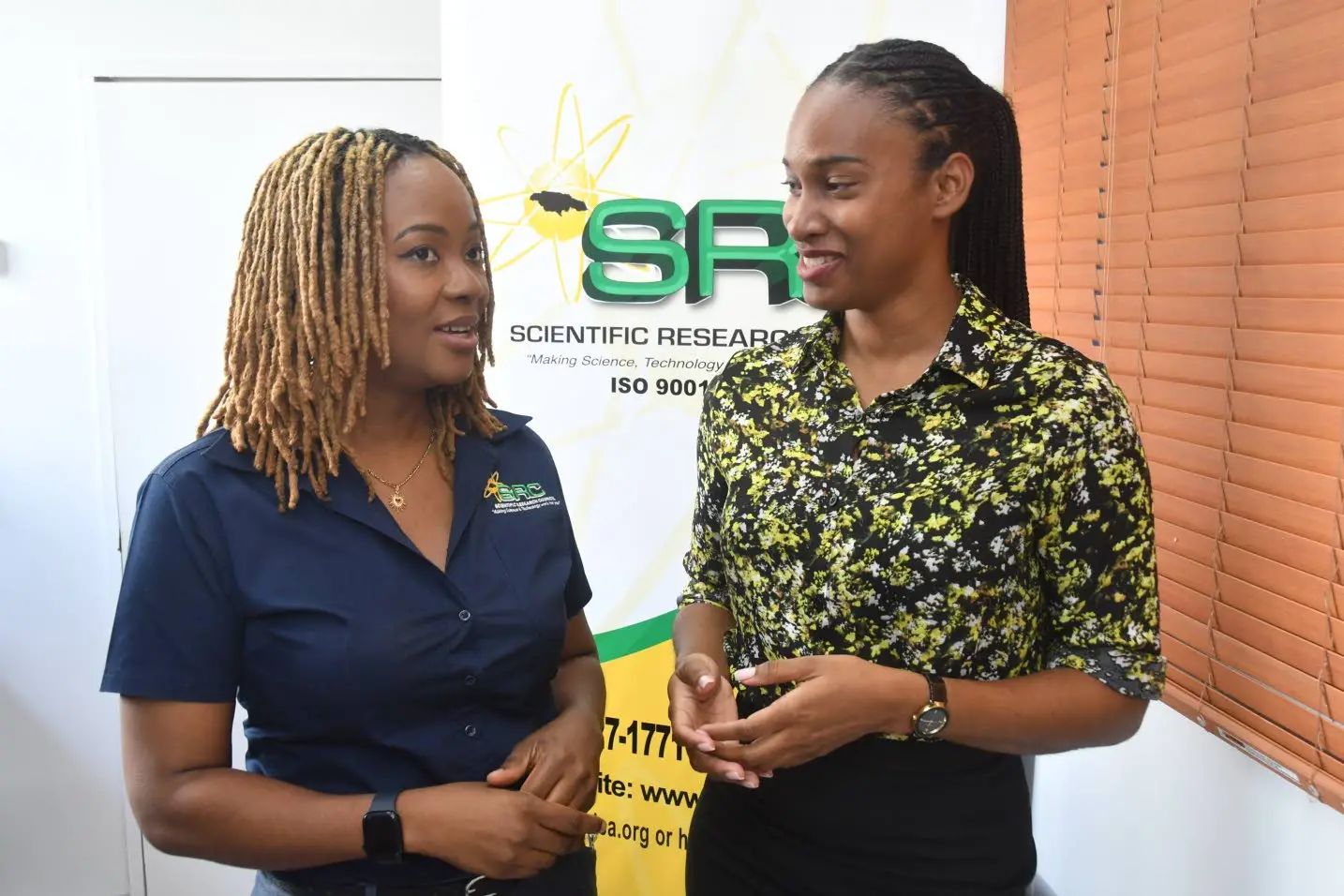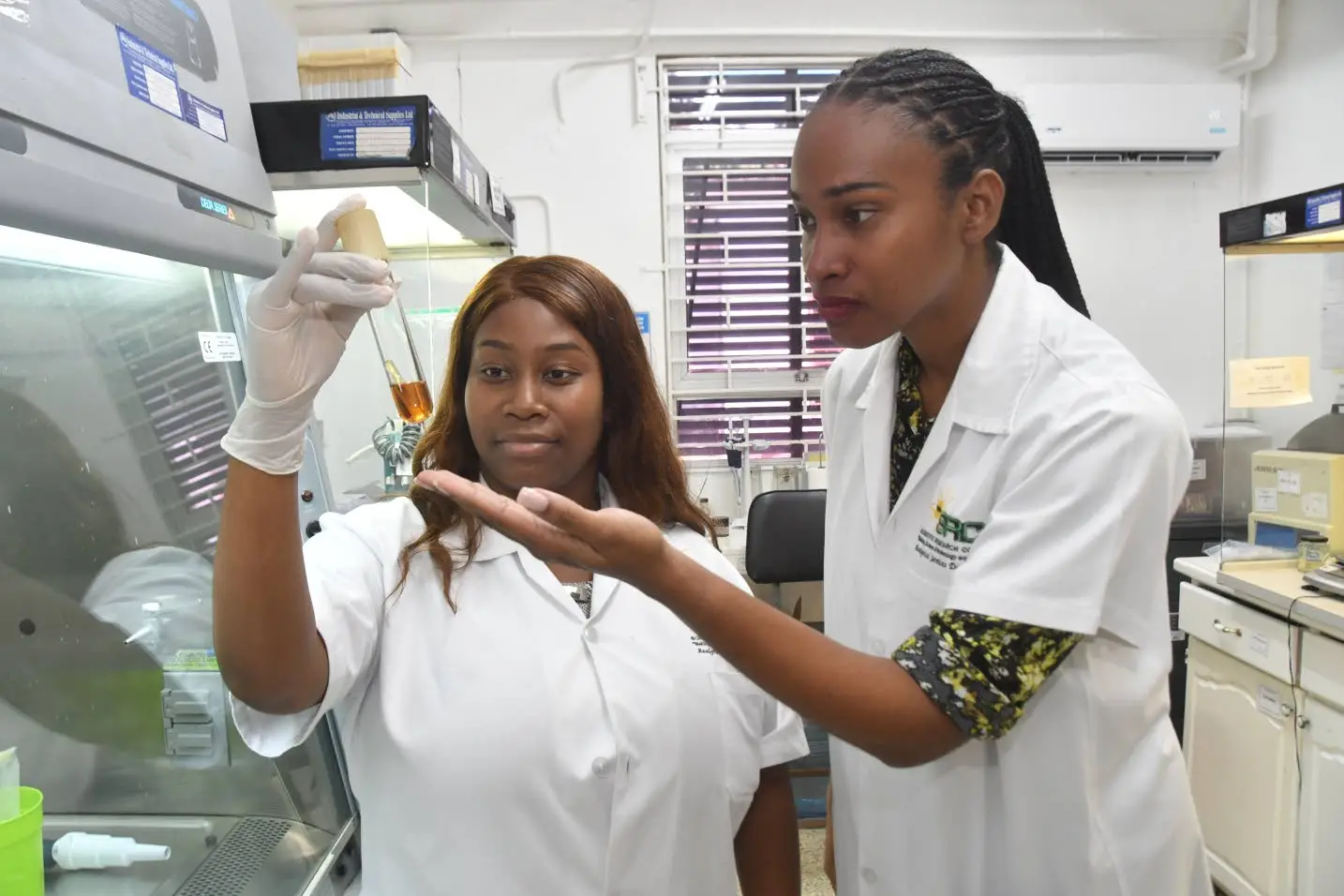
BOTTLED WATER QUALITY UNDER SCRUTINY
Experts call for more testing
IN a bid to ensure public safety, Dr Charah Watson, head of the Scientific Research Council (SRC), is urging bottled water producers and refill stations to maintain rigorous testing protocols.
The call comes in the aftermath of complaints to the SRC from consumers enquiring about water and water quality, particularly bottled water or water from refill stations.
“Persons will ask about a particular brand or a particular enterprise, which we don’t necessarily divulge information on,” said Watson, during an interview with the Jamaica Observer.
She explained that while consumers would often contact the SRC to ascertain if the body tests water sold at various entities, in an effort to determine if certain standards are being met, such information is not given out due to confidentiality agreements between the water companies and the SRC. However it was pointed out that water bottlers are informed when their water quality is below a certain level, and that a technical team is also available to lend support to identify where there might be an issue, and steps to take to be back in compliance.
Still, Watson sought to reassure the public that most water bottled locally are of high quality and meet certain safety requirements.
“You will have differences in flavour because some manufacturers might add minerals, extract minerals, or have a higher level of chlorine, so that will affect the taste. So taste doesn’t necessarily infer quality,” she explained to the Business Observer.
The SRC official emphasised that safety is determined by microbial content, ensuring the water meets potable standards. She noted that bottled water is not a sterile product, as there will be some amount of microbes, but for consumers who are concerned, she urges relaxation, pointing out that even air that is breathed contains microbes. She further clarified that consumer complaints often mix concerns about taste with quality, with some reports focussing on the water tasting bitter or salty.
“Organoleptic, meaning flavour, aroma, taste — those sensory things that you associate with food — sometimes lead to complaints. But it doesn’t necessarily impact the safety of the water,” she added.
The SRC conducts water testing for several companies, including some refilling stations that already test their water frequently. However, the council is recommending that all refilling stations implement regular testing. Refilling stations typically have fast processing systems, meaning water is sold shortly after it is processed, reducing the risk of contamination. Unlike bottled water in supermarkets, which may sit for weeks or months, refilled water is less likely to pose safety concerns if proper cleaning and handling procedures are followed. However, breaches in packaging can still create opportunities for microbial growth, which can become significant if stations don’t have effective cleaning and sanitation protocols that are done with some amount of frequency to ensure that the machines and equipment used in the bottling process do not have any residue or mould.
The SRC is encouraging not just water bottlers, but also general food producers to ensure that their quality assurance and quality control programmes are fully in effect and are fully working as intended, to ensure public safety.
“None of us want to have any issue of food poisoning or recall on our hands, because we know how that can impact not just the health and welfare of our consumers, but it can also significantly impact your businesses. So it’s within everyone’s interest to ensure that our quality control and quality assurance programmes are effective and fully enacted,” Watson told the Business Observer.
The SRC is encouraging manufacturers to reach out to frequently re-evaluate and test their systems. At least annually to fully evaluate test systems to ensure that it’s working as it should. However, she also pointed out that consumers have a role to play in protecting themselves from unsafe potable water by checking the labels.
“One of the reasons why your label must always have contact information for the manufacturer on it is that, if you are concerned about a product, call the number or email them. If you cannot get through all those contact information … then Consumer Affairs and the Ministry of Health become very important to you because you should be able to get a proof of information on the quality of the product you’re consuming,” she stressed.
Ray-Ann Shaw Phillips, team leader of analytical services at the SRC, stressed the importance of water quality for health, warning that poor water conditions can lead to gastrointestinal issues. While complaints are received occasionally, Phillips noted that concerned consumers often take the initiative by testing their water, whether tap, bottled, or from refilling stations. She explained that individuals who suspect water-related health issues can pursue further action through the Consumer Affairs Commission. Testing is typically done privately, with some consumers using SRC test results as part of their complaints to determine whether their concerns are valid. The SRC plays a vital role in supporting Jamaican businesses, particularly micro, medium, and small enterprises. As a facilitator and supporter, the SRC helps these businesses deliver quality goods and services by conducting quality assessments to ensure compliance with required standards. The SRC’s role is not to regulate but rather to collaborate with businesses that approach them voluntarily. However, if concerns arise, the SRC will work with regulators to address any issues.

























